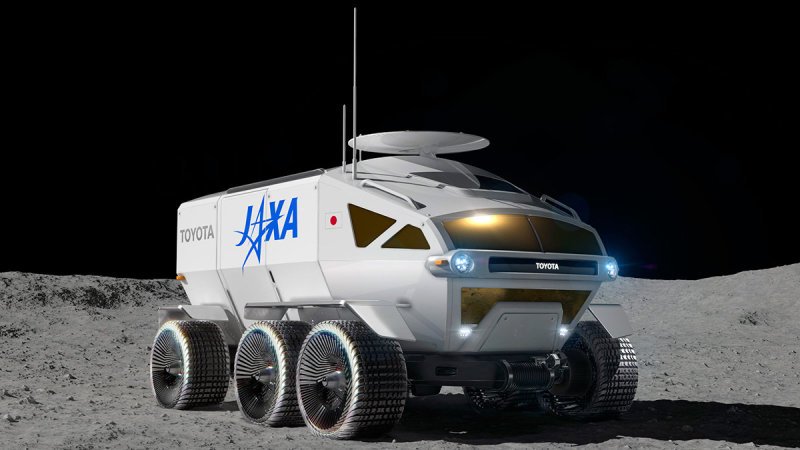Toyota will spend 10 years perfecting its astronaut moon rover

Japan has an ambitious plan to send men to the moon by 2030 as part of a multinational mission and is determined they'll have a ride when they get there. Japan's space agency JAXA and partner Toyota have revealed that the pressurized, manned lunar rover — announced earlier this year — should be ready to launch by 2029.
The six-wheeled vehicle will carry two people up to 6,200 miles using solar power and fuel cell technology. At 20 feet long, 17 feet wide and 12 feet tall, it'll have 140 square feet of habitable space. Thanks to the pressurization, astronauts won't need spacesuits while inside.
The timeline is pretty busy, and considering the challenges of developing tech for human space exploration, Toyota and JAXA will do well to meet their deadlines. The official plan runs for three years, up to 2022, with a tentative plan for a push toward launch between 2022 and 2029.
- Fiscal year 2019: Identifying technological elements that need to be developed for driving on the surface of the moon; drawing up specifications for a prototype rover
- Fiscal year 2020: Manufacturing test parts for each technological element; manufacturing a prototype rover
- Fiscal year 2021: Testing and evaluating both the manufactured test parts and the prototype rover
- From 2022: Manufacture and evaluation of a 1:1 scale prototype rover; acquisition and verification testing of data on driving systems required to explore the moon's polar regions
- From 2024: Design, manufacture, and evaluation of an engineering model of the rover; design of the actual flight model
- From 2027: Manufacture, and performance and quality testing of the flight model
At that point, the rover will be ready for a scheduled 2030 launch. In theory, it will arrive on the moon ahead of the human explorers and drive autonomously to meet them. JAXA wants to use it to help astronauts explore the lunar poles in search of frozen water, while at the same time developing tech that could be used on other planets. If the ambitious project works out, it'll give astronauts a cozy escape from the lunar desert's magnificent desolation.
Related News
